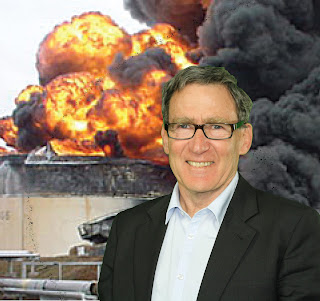Craig Donaldson speaks with Professor Andrew Hopkins, FSIA,
about his greatest professional achievements, challenges and goals.
Professor Kim Beazley, Australian ambassador to the US,
said: “Professor Hopkins is a major
national asset. His work on the causes of
disastrous accidents has made him internationally known – an element of our
national capacity to intellectually ‘punch above our weight’.”
It is rare that Australian academics are so well known on
the world stage. But Hopkins has come a long way since starting out as a
journalist with The Age in Melbourne in 1968, before going on to complete a
Master of Arts in Sociology at the Australian National University in 1970.
Starting out in safety
Hopkins recalls some of the events that led him down the
safety path: “One of the things that
really sticks out in my mind is the 1979 Appin coalmine disaster. Appin is a
small mining town, about 50 kilometres south of Sydney, and I think there were
14 miners killed in that disaster,” he explains.
“For some reason that I don’t quite understand, I was
particularly disturbed and moved by that accident. I knew none of the people
concerned, but nevertheless the news of that accident had an impact on me. I
then wrote an article about that in an Australian quarterly called Crime Without Punishment and I went on
thereafter to continue in this field.”
Another incident that got Hopkins thinking about safety was
a young apprentice who was burnt to death in a Corn Flakes vat in Sydney.
Again, Hopkins went on to write an article about this, as the legal response at
the time was “entirely inadequate”.
“These two events really got me going. I’m a sociologist, I
majored in the social organisational causes of these things. I’m interested in
the role of regulation in preventing these things, and both of these accidents
raised those issues in a very stark kind of way,” he explains.
Safety versus profit
Hopkins believes tht safety can sometimes take a back seat
to the commercial drive to produce profits – a “real challenge” for OHS
professionals. He recalls an incident some years ago when he was asked by the
CEO of a mining company to assess safety culture in some of his mines. “He told
me that I could stop work underground if I wanted to talk to the guys. So in
one of the mines, I actually said, “I want you to stop work. I want the whole
operation to come to a standstill and I want you guys at the mine face.”
“Well, this was much resented by the miners, because their
bonuses were on the line. I didn’t get much out of these miners, but the most
valuable aspect was their reaction. When I got back to the surface, the mine manager said to me:
‘Do you realise that the stoppage you ordered cost us about $20,000 in production?’
“Now, what was astonishing to me was that, here I was, a
representative of the CEO, and this [mine manager] was willing to make this
point to me about how unwilling he was t
stop work in this kind of way.”
More than anything else, this demonstrated to Hopkins the
pressure to continue operations and how the production imperative took
precedent over almost everything else. He recalls a sociologist called Harold
Garfinkel who said, the best way to understand implicit social order is to
experimentally violate it and see what happens.
“In fact, that’s what I had done. I had conducted an
experiment violating the implicit social order and what it demonstrated to me
was, the power of that production pressure operating in that environment is
just so overwhelming. This is something that we need to understand,” says
Hopkins.
“We’ve got to find ways to curb this pressure – that’s the
real challenge for health and safety professionals. It’s not the case that
production pressures inevitably lead to accidents, but they will if they’re not
curbed. You have to find ways to curb them.”
Hopkins believes OHS professionals know a great deal about
the technical aspects of health and safety, but they need to combine forces
with organisational sociology to understand why organisations behave the way
they do, as well as take part in the process of organisational redesign to give
high priority to safety.
Current motivations
Today, Hopkins is still motivated about the safety cause
every time he hears about single fatalities, in particular, as “in some
respects [these] are more important,” he says.
“We have more people killed in farming accidents and in road
transport accidents than we do in major hazard facilities, but when large
numbers of people are killed together it seems to get attention,” says Hopkins.
A “fairly significant milestone” in his career ws winning
the European Process Safety Centre Award in 2008 – the first time the award was
given to a recipient outside of Europe – for “exceptional contribution to
process safety”.
Hopkins has also had 11 books published (together with
around 50 articles in refereed journals, 26 chapters in books and 28 articles
in newspapers or unrefereed journals), which have mostly dealt with major
accidents.
“I guess the next book I want t write will be about the Gulf
of Mexico oil spill,” says Hopkins, who has been engaged by the US Chemical
Safety Board to take part in the oil spill investigation.
He believes the books he has written are among some of his
greatest professional achievements. “I’ve managed to strike a chord in people’s
minds with what I write and convey messages they want to hear,” Hopkins
concludes.
Process Safety training DVD workshops featuring Professor Andrew Hopkins can be found on the FutureMedia website





